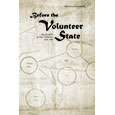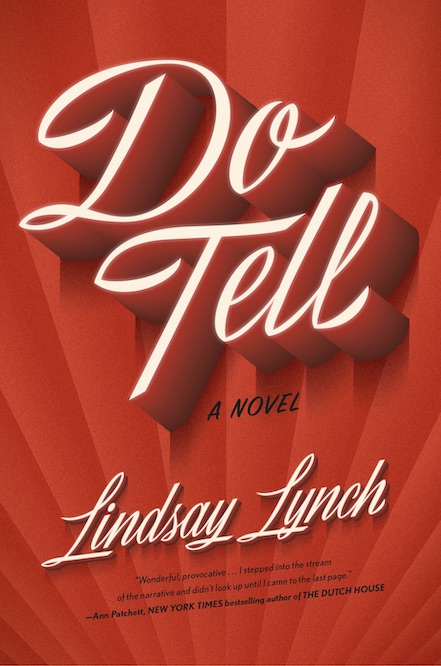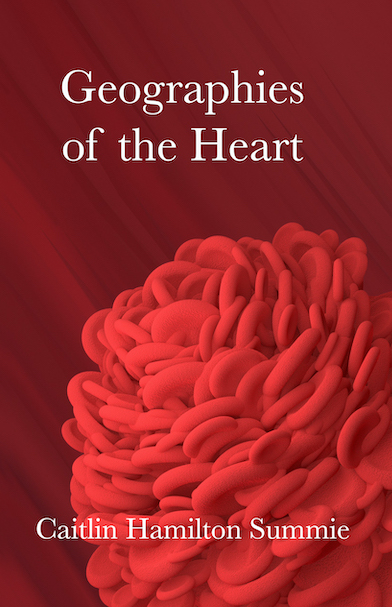Family is Forever
Patricia’s McKissack’s Never Forgotten offers children an honest yet gentle introduction to the painful subject of slavery
A prolific author who has spent decades mastering her craft, Nashville native Patricia McKissack is no stranger to accolades. Her books for children have been recognized with Coretta Scott King awards, the NAACP Image Award, and Newbery and Caldecott medals, to name but a few. Twenty-five years ago, in the introduction to her very first picture book, she wrote, “It is through me that my family’s storytelling legacy lives on.” In her newest book, Never Forgotten, McKissack takes the gift of narrative granted to her on countless front-porch summer evenings and uses it to tell the stories of those whose own families were changed forever by the evil of slavery.
In the book’s afterword, McKissack explains that by weaving together elements of African and Caribbean history and folktales, she has created “a story that addresses the question all of us who are descendants of the Taken ask: ‘Were we missed?’ I answer with a resounding ‘Yes! We were never forgotten.’” Of this tale of parents who faced the grief of never knowing where their children were taken, or even if they survived, and children forced to endure unspeakable suffering, Publishers Weekly notes, “The willingness to turn the dark history of the past into literature takes not just talent but courage. McKissack has both.” Kirkus Reviews (like Publishers Weekly, School Library Journal, and Booklist) gave Never Forgotten a starred review, calling it “a totally absorbing poetic celebration of loss and redemption.”
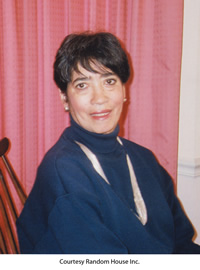 Set in eighteenth-century Mali in West Africa and narrated as a series of poems by an unnamed “griot” or storyteller, Never Forgotten is the story of Dinga, a highly revered village blacksmith, and his son Musafa. When Musafa’s mother dies in childbirth, Dinga flouts tradition by insisting he will raise the child himself, rather than take a second wife or give the baby up to an adoptive mother. A “master craftsman” and “powerful magician,” Dinga depends upon the cooperation of the spirits of Earth, Fire, Water, and Wind to make his work possible, and to these mystical beings he also turns for help with Musafa. Earth Mother, Fire Woman, Water Maiden, and Wind Spirit accept the challenge: each teaches and inspires Musafa in her own unique way. Earth Mother shares with him “the wisdom of the ages”:
Set in eighteenth-century Mali in West Africa and narrated as a series of poems by an unnamed “griot” or storyteller, Never Forgotten is the story of Dinga, a highly revered village blacksmith, and his son Musafa. When Musafa’s mother dies in childbirth, Dinga flouts tradition by insisting he will raise the child himself, rather than take a second wife or give the baby up to an adoptive mother. A “master craftsman” and “powerful magician,” Dinga depends upon the cooperation of the spirits of Earth, Fire, Water, and Wind to make his work possible, and to these mystical beings he also turns for help with Musafa. Earth Mother, Fire Woman, Water Maiden, and Wind Spirit accept the challenge: each teaches and inspires Musafa in her own unique way. Earth Mother shares with him “the wisdom of the ages”:
Fear is a leopard; Courage renders him toothless.
When the drumbeat changes, you must change the dance.
Learn by reaching back with one hand
While stretching forward with the other.
Kings may come and go, but the family endures forever.
Years pass, and Musafa grows up strong and free until the unthinkable happens: he is taken by slave traders while on an errand for his father. An anguished Dinga calls out to the four elements to help him, and each in turn attempts to find and save Musafa. The recounting of their searches makes up the remainder of the book, and although a traditional happy ending is not possible with this story, McKissack’s unflinching yet grace-filled narrative leads Dinga and the reader to a place of hopefulness. All is not lost as long as life endures, and sometimes—against all odds—a person finds the strength to defy the dark intentions of an often violent world. The griot concludes with good advice to readers of all stories, especially those—like Never Forgotten—with inspiring lessons to teach:
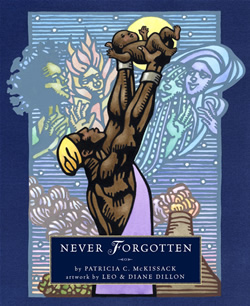 The last part of a story is the silence
The last part of a story is the silence
That comes at the end.
A time to think, to reflect…
Loved ones are never forgotten
When we continue to tell their stories.
‘Kings may come and go,
But the family endures forever.’
Think on that when the silence comes.
Husband and wife illustrators Leo and Diane Dillon are the recipients of Caldecott medals, New York Times Best Illustrated awards, Coretta Scott King awards, and many other honors. Their boldly evocative acrylic and watercolor illustrations for Never Forgotten are the perfect accompaniment to McKissack’s powerful prose and provide striking depictions of both the joy of life and the sorrow of loss. “The pictures demonstrate the miracle of superb book illustration: how something that lies flat on the page can convey such depth, texture, and feeling,” School Library Journal notes .
McKissack and the Dillons have indeed collectively performed a miracle. They have created a children’s picture book about slavery that is neither maudlin nor depressing. Instead it is brave, heart-rending, visually breathtaking, truly magical, and filled with a deep wisdom that will resonate with anyone who has wrestled with pain and grief. The publisher’s website suggests that Never Forgotten “is sure to become a treasured keepsake for African American families.” While well-meant and undoubtedly true, this sentiment seems far too limiting for a work of art that transcends time and circumstance to touch the hearts of all who experience it. Never Forgotten will be an exquisitely hopeful and healing gift for any child—or adult—who reads it.
To read Chapter 16’s profile of Patricia McKissack, please click here.
